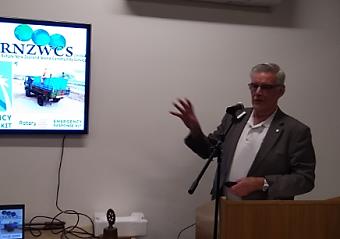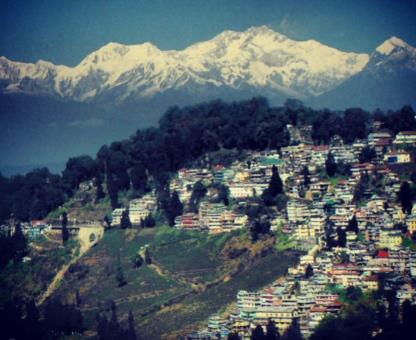North India Project Presentation

Stuart Batty gave us a fascinating look back at a major international project in North India.where the team was sent in to appraise how it had gone.
Initially based just South of Shimla, the aim of the ten year project was to educate ~30 communities (7 informal settlements and 23 neighbouring villages) in an underdeveloped part of the District of Solan, Himachal Pradesh to become self-sufficient which included being able to grow their own crops and develop irrigation with improving water, wealth, health and agriculture being the main focus.

Shimla, Northern India
“The area was mountainous, barren and very hot and there were monkeys everywhere” smiled Stuart.
The team were not allowed to wear any items with the Rotary logo as NGOs were not welcome so the team had to go in as tourists and be very discrete about what they said.
They began by discussing and getting feedback on the efforts of the project so far across thirty communities. “We also checked progress in making check dams”, explained Stuart, “which stored water for use in irrigating land to grow food”.
Another focus was to produce water via building reservoirs in order to feed animals plus they also drilled down to obtain water and raise it up to secured storage areas so that animals and thieves couldn’t get at it. In addition the project involved the use of water tanks that were filled when it rained.
Other reservoirs were built on land to facilitate the growing and irrigating of crops. The project also involved the propagation of seeds and the building of shelters to protect the seeds and plants from animals.
“The outcomes were fantastic” smiled Stuart “as locals were now able to feed their families with extra food being sold with the money raised spent on important things including education for children.”
The project also supported multiple and huge settlements that were very poor where children and young teenagers were living in crowded situations with little comforts.
The team then headed to Shimla which is built on the side of a mountain. “In the past the town used to house the Government during the hot season” explained Stuart.
Overall, the major outcomes of the trip were seen as having been achieved which was highly relevant to local needs and in particular with respect to the emphasis on water conservation & capture for agriculture and the availability of a safe drinking water supply. Health training and testing was also relevant to the needs of both the landless and smallholders.
There was a shortfall of $90,000 overall and the team were delighted when one Rotarian wrote out a cheque for the total amount.
We thanked Stuart for his interesting presentation on a very successful and worthwhile project that made a significant difference for the population of the area it was based in.